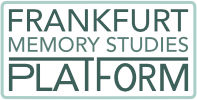
On Thursday, 30 June 2016, William J. Buxton (Professor of Communication Studies, Concordia University in Montreal) will visit Goethe University and give a lecture titled “Harold Innis, the Northern Frontier, and the Making of Cultural Memory in Canada, 1920-1945” as part of the FMSP lecture series New Frontiers in Memory Studies. The event will take place from 12 to 2 pm in IG 1.414.
Frankfurt, 30 June 2016, 12-14 in 1.414
Poster (PDF)
Abstract:
“If some countries have too much history, we have too much geography.”
William Lyon Mackenzie King (Canadian prime minister), 1936
My paper flows from the premise that in the two decades prior to King’s pithy pronouncement, Canadian elites arose to the challenge that it signified, namely the claim that Canada, in the words of Brian S. Osborne, had “too much space and too little time.” Implicit in King’s statement was the normative judgment that in order to become a full-fledged sovereign nation-state, Canada not only needed to attain control and mastery over its vast space, but also expand and give form to its collective sense of time. The first part of the paper will trace how certain members of these elites, in conjunction with other political, military, cultural and economic organizations (as well as with representatives of the British monarchy) — sought to construct Canadian memory, space, and place during the period 1917-1932, underpinning their efforts to help secure sovereignty for the emergent Canadian nationstate in the northern tier of the North American continent. The second part of the paper will examine how and to what extent the work, thought, and activities of Harold A. Innis (one of Canada’s most celebrated thinkers) contributed to this process. Particular attention will be given to how his emergent ideas on time and space could be seen as an effort to correct biases in nation-state formation that he had detected, with specific reference to Canada’s North. The third and final part of the paper will explore the spatial-temporal aspects of an artistic production from this period (A.Y. Jackson’s 1928 painting, “The Beothic at Bache Post, Ellesmere Island”). I will argue that it embodies the aspirations, tensions and lacunae inherent in the efforts of Innis and others to help construct Canadian cultural memory in the interwar period.

Research Project: Great War Experience and Cultural Memory: The United States, Canada, and Germany
My research project takes the form of a comparative analysis of the relationship between the experience of The Great War (1914-1918) and post-war cultural memory in Germany, the United States, and Canada. The three nationally-based forms of experience include the effect of the War both on military personnel and citizens through the on-going combat as well as through propaganda. My interest is not so much in the histories that were written after the war. Rather, I wish to examine how the event came to be remembered, as evident in debates and discussions within the public sphere of each country. I will give particular attention to the decade between the Treaty of Versailles (1919) and the outbreak of the Great Depression (1929). Drawing on the work of van Gennep, Douglas, and Turner, I view this as a “liminal” zone of transition, characterized not only by danger and anxiety, but also by innovation as well as cultural, political, and intellectual ferment. I argue that these activities not only involved consolidating previous practices and institutions, but imitating initiatives that had been taken place elsewhere.


